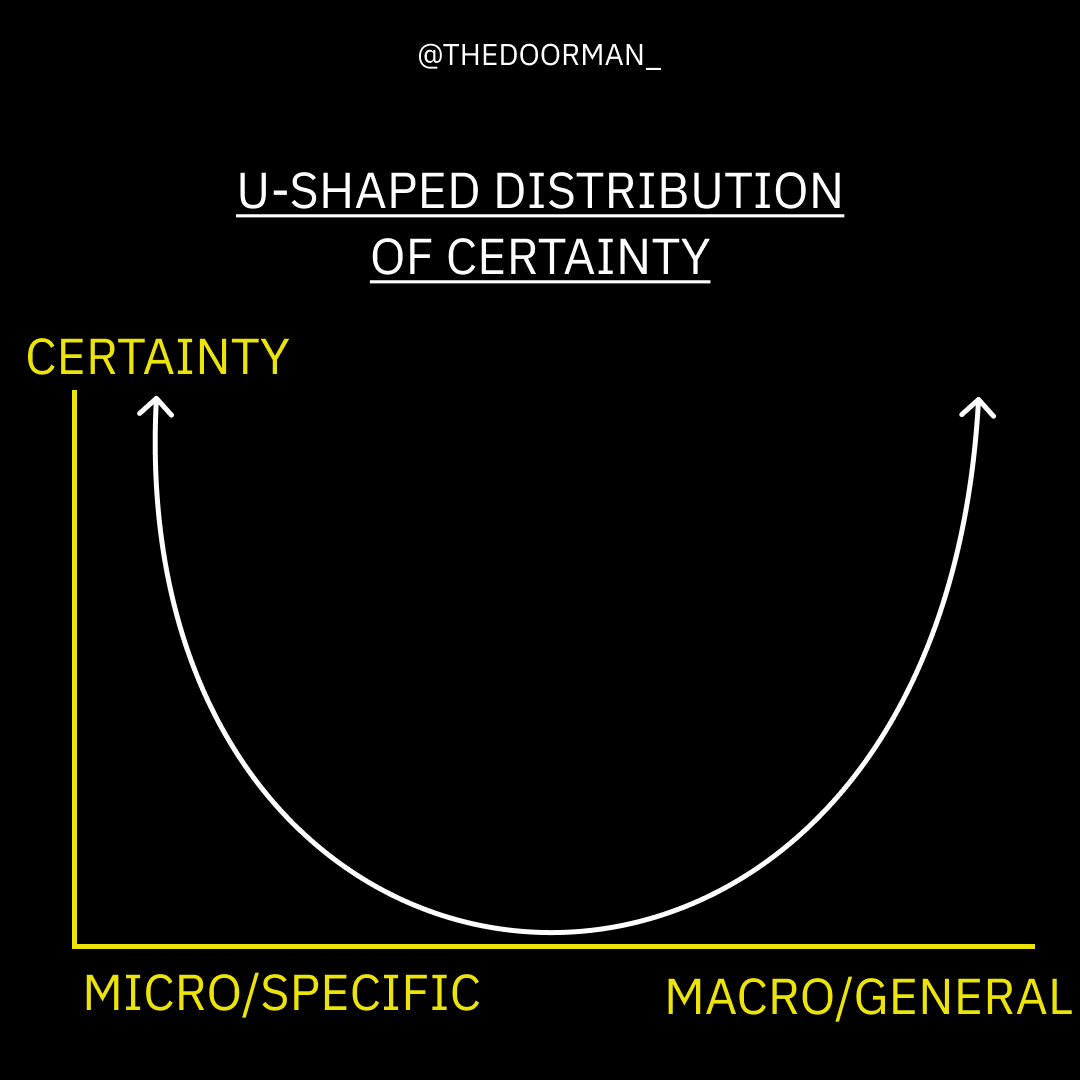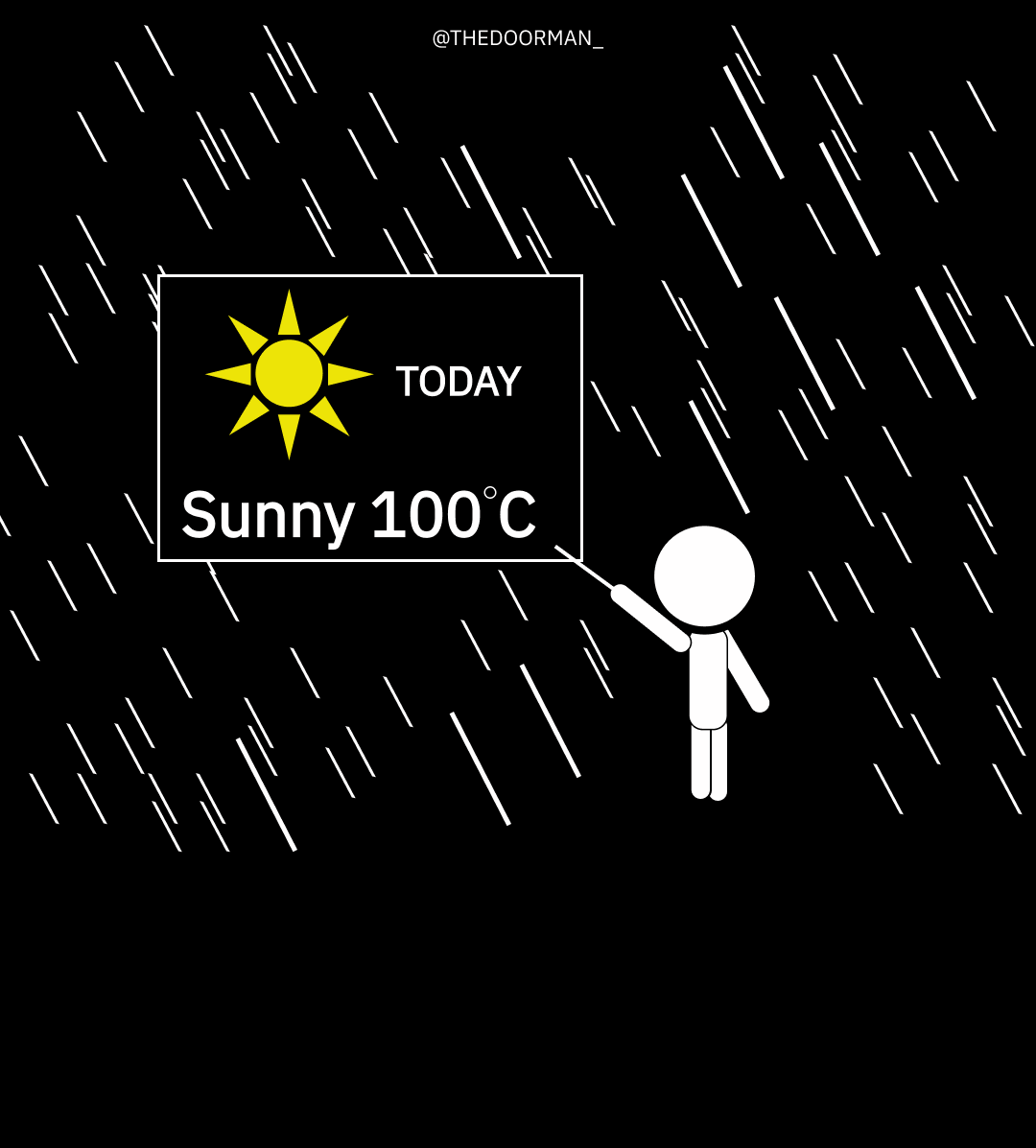‘If it’s not simple, it’s suspicious’
Joe, if it’s not simple, it’s suspicious — Gilly And it was Gilly who invited me and some friends to speak on a Zoom Event last year. We were sharing our personal religious and spiritual journeys for a group called SIP, which stands for ‘Spirituality in the Pub.’ All these SIP members listening in were middle-aged and elderly — most of them had some sort of Christian background, yet the conversations they have are totally open and very often multi-faith. They’re not conservative, they’re real, and this struck me from the outset. So the three of us told our stories, openly, holding nothing
Explaining The U-Curve of Certainty
So after reflecting on a lot of Nassim Taleb ideas, and a fair bit of my own philosophy, I’ve arrived at this general U-Curve of Certainty Theory. The hope is that it helps us find the truth when speaking about complex systems (What’s a complex system? See my definition here) and avoid ‘The Weatherman Phenomenon — how smart people become dumber, while looking smarter.’ The idea in a nutshell is this — I can be very certain about things that are Micro (smaller in scope), specific/individualised and imminent, and also about things which are very Macro, general and long-term, but not much
Complex, Complicated and Simple Systems — understanding the levels of Reality.
This is part one of a series of posts around the ‘U-Curve of Certainty’ Theory, which is intended to help people navigate complex systems. Today I will do my best to explain complex systems, and how they interact with simple systems, without boring you half to death. What’s a complex system? A complex system is ‘a system composed of many components which may interact with each other’ (thank you Wikipedia). Examples include climate, human beings and markets… at the end of this post, I list even more. You cannot control or predict exactly what sort of person your child will be in the future, nor
The Weatherman Phenomenon — How smart people become dumber, while looking smarter.
Is there a bigger fraudster in society than he who presumes to predict the weather? Let's unpack that today, building on what we first discussed with the U-Curve of Certainty Theory and complex systems. An angry rant about Weathermen (or Weather People, to be more PC). It was New Year’s Eve. I can’t remember the year, what I can remember is the weather forecast — the weatherman said there was a ‘0% chance of rain.’ Not 2%, not 1%, but 0%. You can probably see where this is going. Come New Year’s Eve, it rained. What a bizarre profession, where you can get away with
Applying Antifragile and Nassim Taleb’s Ideas to Education, Learning and Career
Okay this blog post is not like the usual stuff you get from me — it will probably require patience and note-taking. It corresponds with a mini-series on the With Joe Wehbe Podcast to do with Nassim Nicholas Taleb, whose books are pretty hard to read especially for young people! Check out the podcast here — the Taleb series starts from episode 181. I want to spend time on the podcast unpacking great thinkers about education, learning and careers and I wanted to start with Taleb. Taleb is a very entertaining, intellectually sassy figure known in particular for his epic books and ideas
Frameworks to organise your whole life
I've been writing on www.withjoewehbe.com for more than a year, trying to open Doors for others. What I've learnt about people is that when we haven't clarified our own ideas or values on a topic, we are impressionable — we take them absent-mindedly from those around us. Ideas and values dictate what Doors we open, and so, we must choose our own ideas and values, so that we control our journeys. Here are some frameworks that will change how you think for the rest of your life: The Minimum Viable Lifestyle — personal finance, how you invest your time, how hard you chase income
Don’t predict the rain – have the wedding inside
Google is good at predicting the weather for the next hour. It is ok at predicting the weather for the next eight hours. It is touch-and-go when it comes to predicting tomorrow's weather. Google sucks at predicting the weather one week from now. Simple, Complicated, Complex A wheel is a simple system. Infants know how a wheel works. Planes are complicated systems. Few of us know the ins and outs of how planes work, but each subsystem of the plane is simple, like the wheel. The complicated system is just a whole heap of simple systems stitched together. But they are knowable. The weather is a complex, if
The Law of Cooling (Why We Think We’ll Change But Don’t)
The Law of Cooling When you take a hot bowl of water out of the oven and sit it on the counter, thanks to the law of cooling, it will eventually adjust to the temperature of the room. The room temperature becomes the temperature of the bowl, and not the other way around. The culture and the environment are always more powerful than the individual. We always fall back to the bare minimum systems we have in place. But what is the source? But when you place that water in the stove and light the gas, the water will heat up, and irrespective of









